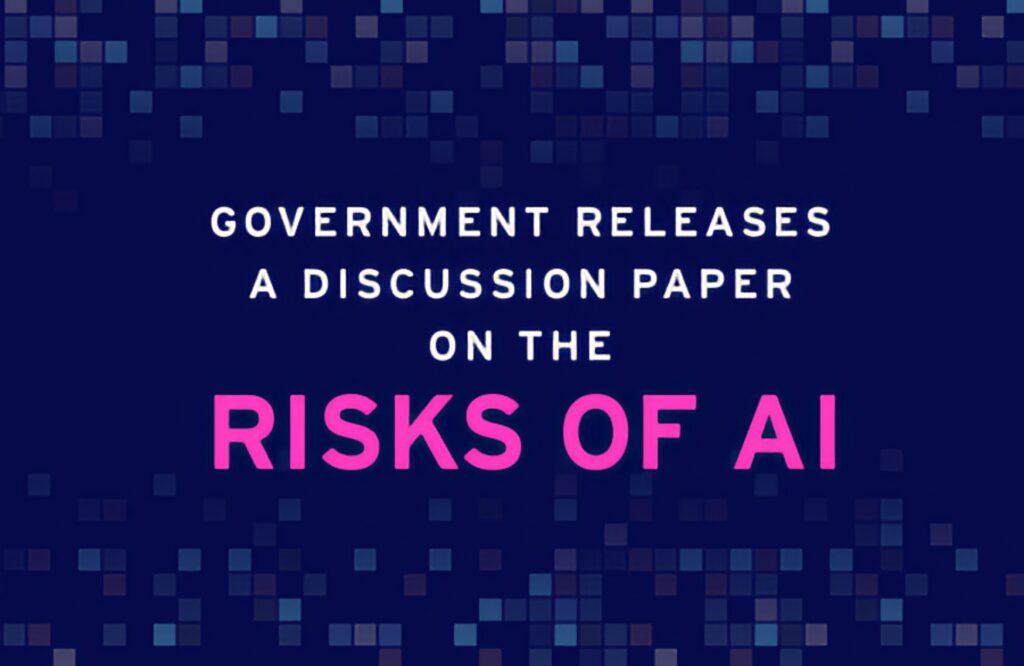AI Hazards Under Spotlight as Global Safety Summit Approaches in the UK
UK Paper Highlights AI Risks Ahead of Global Safety Summit
The UK Government has released an extensive paper examining both the capabilities and potential threats associated with frontier AI. In a recent address, UK Prime Minister Rishi Sunak underscored the global mandate to tackle the risks identified in the report while also maximizing AI’s potential. He stressed the importance of open dialogue regarding AI’s dual nature, noting it offers remarkable opportunities alongside significant dangers.
“AI will provide new insights, economic growth opportunities, advancements in human capacity, and solutions to challenges we once deemed insurmountable. However, it brings forth new threats and anxieties,” Sunak stated. “It is imperative to confront these concerns directly, assuring the public that we are committed to keeping them safe while ensuring a brighter future for all.”
The report elaborates on the rapid progress of frontier AI, incorporating a variety of viewpoints from the scientific and global communities concerning the associated risks. It is divided into three main sections:
- Capabilities and Risks from Frontier AI: This section advocates for further investigation into AI-related risks, detailing current capabilities alongside potential enhancements and the societal hazards they may pose.
- Safety and Security Risks of Generative AI by 2025: Utilizing intelligence assessments, this segment outlines the potential advantages of generative AI while simultaneously highlighting escalated safety and security risks, notably enhancing the capabilities of threat actors.
- Future Risks of Frontier AI: Compiled by the Government Office for Science, this part discusses the uncertainties in frontier AI development, the risks associated with future systems, and various scenarios extending to 2030.
The publication is grounded in declassified intelligence reports focusing on generative AI, which is the technology behind popular chatbots and image generation systems. It predicts a future where AI could be exploited for harmful purposes, such as planning biological or chemical attacks, thereby raising profound security concerns.
Sjuul van der Leeuw, CEO of Deployteq, remarked, “It’s reassuring that the government is taking a proactive stance by releasing this report ahead of next week’s Safety Summit; however, much more action is required. We hope that the summit will provide essential clarity, enabling businesses and marketers to reap the benefits of this emerging technology without fear.”
The report details how generative AI could be harnessed to acquire knowledge needed for physical attacks by violent non-state actors, including the creation of chemical, biological, and radiological weapons. Although organizations strive to implement protective measures, the effectiveness of these strategies remains inconsistent. The report indicates a decrease in the barriers to obtaining the necessary knowledge, raw materials, and tools for such attacks, with AI potentially speeding up this troubling trend.
Moreover, it warns that AI-driven cyber-attacks are likely to become more frequent, effective, and large-scale by 2025. AI’s ability to help hackers mimic official language could mitigate previous obstacles in their operations.
Nonetheless, some experts have expressed skepticism regarding the UK Government’s stance. Rashik Parmar MBE, CEO of BCS, The Chartered Institute for IT, stated, “Over 1,300 technologists and leaders have endorsed our open letter, affirming that AI is a force for good rather than an existential menace to humanity. AI will not develop like the Terminator; with the right measures, it will serve as a trusted ally throughout our lives.”
The AI Safety Summit aims to address these critical issues, fostering a balanced understanding of AI’s risks and benefits.
Engaging in healthy dialogue about tackling the risks associated with frontier AI is essential, especially concerning potential misuse by non-state actors in cyberattacks or bioweapon development. Additionally, there are growing concerns regarding AI systems acting autonomously in ways that oppose human intentions. The discussions scheduled for the upcoming summit will also delve into broader societal implications, including the potential for election interference, bias, crime, and online safety.
Claire Trachet, CEO of Trachet, remarked on the challenges faced by governments: “The rapid evolution of AI makes it challenging for authorities to formulate effective regulations that protect both business interests and consumer rights, without hindering investment opportunities. While some risk management strategies and reports are emerging, a truly coordinated approach has yet to be established.” Trachet praised the UK Government’s commitment to AI safety but noted that the criticisms surrounding the summit highlight the necessity for a balanced, constructive, and forward-thinking strategy in AI regulation.
If the UK Government’s report reflects the current landscape, it underscores the urgent need for collaboration in establishing proportional yet robust measures to manage AI-related risks effectively. The global AI Safety Summit is set to take place at the historic Bletchley Park on November 1-2, 2023.
The utilization of user data has become pivotal in training artificial intelligence (AI) models. As we progress toward June 10, 2025, the ways in which data is collected, stored, and applied in AI training are evolving rapidly. Understanding these dynamics is essential for anyone interested in the future of AI technology.
The Importance of User Data in AI
User data serves as the foundational element for machine learning algorithms, enabling AI systems to learn and improve through experience. The more diverse and vast the data, the better the outcomes for AI applications across various sectors including finance, healthcare, and logistics.
Key Benefits
By leveraging user data effectively, businesses can create tailored experiences, enhance operational efficiencies, and drive innovation in their products and services. The analytical insights derived from this data can lead to smarter decision-making and improved customer satisfaction.
Challenges and Considerations
Despite the advantages, there are significant challenges associated with user data utilization. Privacy concerns, data security, and regulatory compliance are paramount. Organizations must navigate these issues carefully to maintain user trust and comply with laws such as GDPR.
In conclusion, as we move towards a more connected future, the integration of user data in AI development will play a crucial role in shaping innovative solutions while also demanding responsible practices to address ethical concerns.
Recent Developments in AI and Technology
Key Events
On June 10, 2025, Reddit filed a lawsuit against Anthropic, claiming that the company unlawfully scraped user data to train its AI models. This case emphasizes the ongoing concerns surrounding data privacy and ethical AI practices.
In another significant update, TSMC announced a record increase in demand for AI chips amid uncertainty regarding tariffs imposed during the Trump administration. This demand reflects the growing reliance on AI technologies across various sectors.
Additionally, OpenAI has expanded its footprint by opening a new office in South Korea, indicating that this market is becoming its second-largest base for paying users. This move underlines the increasing global reach and impact of AI solutions.
Stay updated with all our premium content and the latest tech news directly to your inbox.
Categories
- Applications
- Companies
- Deep & Reinforcement Learning
- Enterprise
- Ethics & Society
- Industries
- Legislation & Government
- Machine Learning
- Privacy
- Research
- Robotics
- Security
- Surveillance
Sint Eustatius and Saba are two small islands in the Caribbean Sea, part of the Caribbean Netherlands. They are known for their natural beauty and rich cultural history. Each island offers unique experiences, from pristine beaches to vibrant local festivals.
Traveling to these islands provides opportunities for adventure, such as snorkeling in clear waters or hiking to stunning viewpoints. The local cuisine is also a draw, showcasing fresh seafood and traditional Caribbean flavors. Visitors often enjoy the warm hospitality of the islanders, making the stay memorable.
Exploration of the surrounding marine parks reveals diverse wildlife and coral reefs that attract divers and nature enthusiasts alike. These islands encapsulate the charm of the Caribbean while offering a peaceful retreat away from busy tourist trails.






